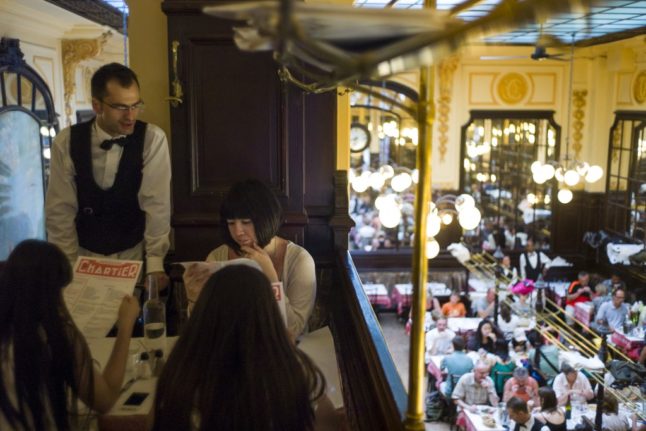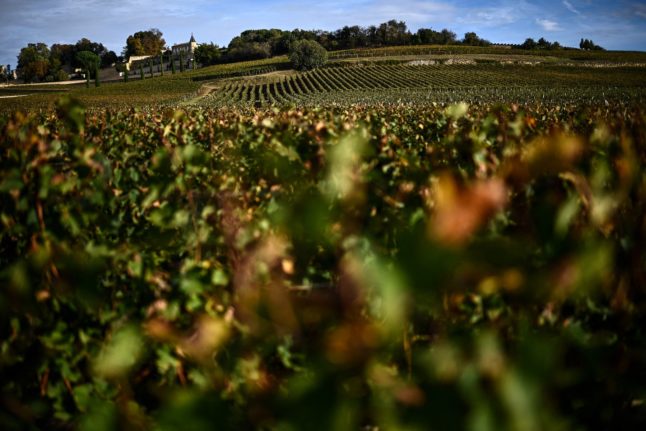For many foreigners, eating delicious food is at the top of their priority list when coming to France. However, you might find that you should make a reservation before eating out, depending on where in France you are visiting and the type of food you are looking to enjoy.
Do I need a reservation? And if so, where would I need one?
Whether you are staying in Paris or in a small town in the countryside, you might be surprised that the small bistro on the corner is fully booked when you walk up looking to dine in. Lots of restaurants in France, including small family-owned type places, are often more in demand than you might think. This is especially common in small towns where locals may be consistent patrons of the town’s crêperie, for example.
Also when it comes to small towns – especially those in touristy areas such as Brittany or the south of France – much will depend on what time of year you are there. If it’s the height of summer or the school holidays make sure to book in advance.
In big cities, like Paris or Lyon which are home to scores of popular restaurants, making a reservation might not be necessary – depending on where you want to go. If you wander around for long enough, then you will likely be able to find a restaurant that will take people on the spot. In fact, several popular or trendy restaurants even have an explicit policies against reservations, in which case you will need to plan to stand in line for ‘first-come, first-serve’ table. If the restaurant has a website or social media presence, you can check online to see if they clearly state ‘no reservations’.
However, traditional French restaurants mostly take reservations, and typically they do so by phone call. Some might allow you to come by in person in advance and make the reservation.
READ MORE: Apéro to digestif: What to expect from every step of a French dinner
Even though France is becoming more tech-friendly, many restaurants continue to rely on phone calls, rather than the internet, for their reservation planning. Calling ahead can also allow you to clarify the restaurant’s hours of operation, as they sometimes differ from what might be listed on Google Maps or there could be an unforeseen closure or shift in the schedule.
Typically, it is best to book about one to two days in advance, but if you are on holiday and generally make last-minute plans then calling as soon as a restaurant opens to get a table at lunchtime, or as soon as it reopens in the evening might be OK. If the restaurant is highly coveted then you may want to see if it is possible to book about a week (or more) in advance.
High-end restaurants, especially those featured on the Michelin guide, will expect reservations in most cases.
READ MORE: 5 eco-friendly French restaurants from the new Michelin guide
When booking for holidays, such as Christmas or Valentine’s Day, you may need to book several weeks (at least two to three) in advance.
What time should I make my reservation for?
Even though they are neighbours, the French certainly don’t follow Spanish dining habits of having the evening meal at 10pm, but having said that dinner in France is usually eaten later than in the US or Scandinavian countries.
Of course, dinner time in France varies between families and regions, but here are some guidelines.
Lunchtime tends to run between 12pm (noon) and 2pm – that’s when restaurants operate their lunchtime service, so that’s when it’s time to eat.
Following the restaurant opening rule, the evening meal period typically starts from around 7pm. That’s when the tables are ready and a lot of restaurants won’t accept a booking before 7pm (some might even start at 8pm).
If you want to eat after 2pm but before 7pm you need to look out for a restaurant that advertises ‘service non-stop‘ (also called service continu), these are quite common in tourist areas and big cities, but are generally not the best restaurants.
In Paris, people tend not to book a table before 8pm to 8.30pm – and plenty of restaurants (not just fast food joints) remain open until midnight.
READ MORE: Reader question: What time do the French eat dinner?
Don’t be fooled into thinking that means Parisians don’t eat until late every evening. Most don’t go out for a meal every night, and may dine a little earlier when they’re at home.
In most towns, cities or villages, restaurants and bistros open for evening service between 7pm and 7.30pm, although tourist resorts often have places that are open all day.
In smaller towns, you may find that restaurants don’t open every night – shutting on Monday is common – or shut their doors earlier, perhaps, than you’d expect, so your window of opportunity for a meal may be slim – especially in the colder months.
How can I go about making a reservation? What websites can I use?
As mentioned previously, you will likely need to make a reservation on the phone, especially for the French countryside.
In order to do so, you will need to say a few things: that you want to reserve a table, the number of people who will be in attendance, and the time and date you would like to request.
First, you should begin by saying hello and asking if they take reservations: “Bonjour, est-ce que vous prenez des réservations ?”
If they say yes, then you can proceed with your request – let’s say you want to reserve a table for three people on March 30th at 8pm, you would say: “Est-ce que je pourrais réserver une table pour trois personnes le 30 mars à 20h ?”
If you are generally wondering if they have any availability that night, you might say “Avez-vous des places disponibles pour trois personnes le soir du 30 mars ? Et si oui, à quelle heure ?”
Be prepared to give a name phone number if they need to follow-up with you. It may be wise to write down your French phone number (or your international number with the correct area code) before the call.
In urban areas, some restaurants take their reservations online – either on their own website or on sites like TheFork.com. You may also be able to book on OpenTable.
Should I tip?
When asked, more than a quarter of readers of The Local France said that they tip sometimes (if they felt like it or had spare change), and almost half (43.5 percent) said they would reserve tipping for those times the service had been particularly good.
One reader based in Strasbourg, Lauren Lever, said: “At a café if I pay in cash or have a few extra coins I will leave the spare change … [but] I often pay with a card and do not tip. However, if we have a really nice experience with great service we will tip nicely to show our gratitude, usually around 10 percent of the bill”.
READ MORE: ‘We tip less in France than in the US’ – readers reveal who they tip, and how much
Helpful vocabulary
Couverts – This translates to “Cutlery”, but in French restaurants it is used to reference how many people will be seated at the table.
Réserver – To reserve
Combien de temps dure l’attente ? – How long is the wait?
Vous êtes combien ? – How many are in your party?



 Please whitelist us to continue reading.
Please whitelist us to continue reading.
Member comments